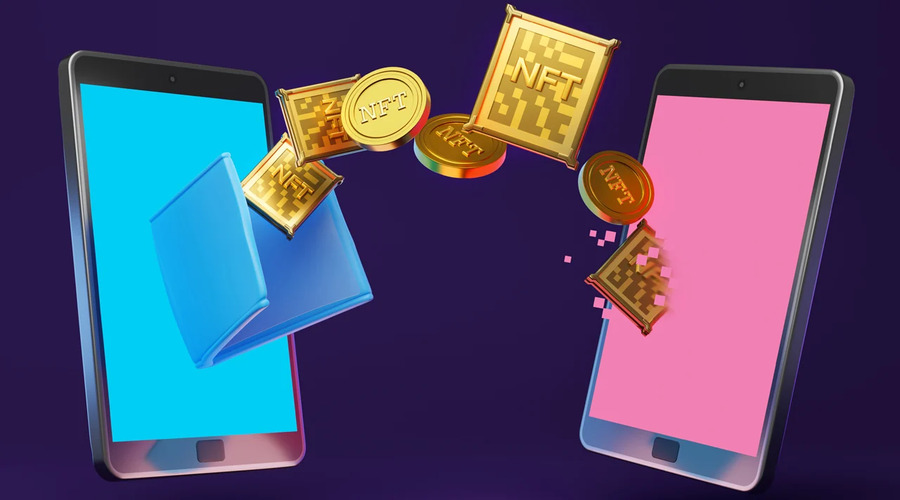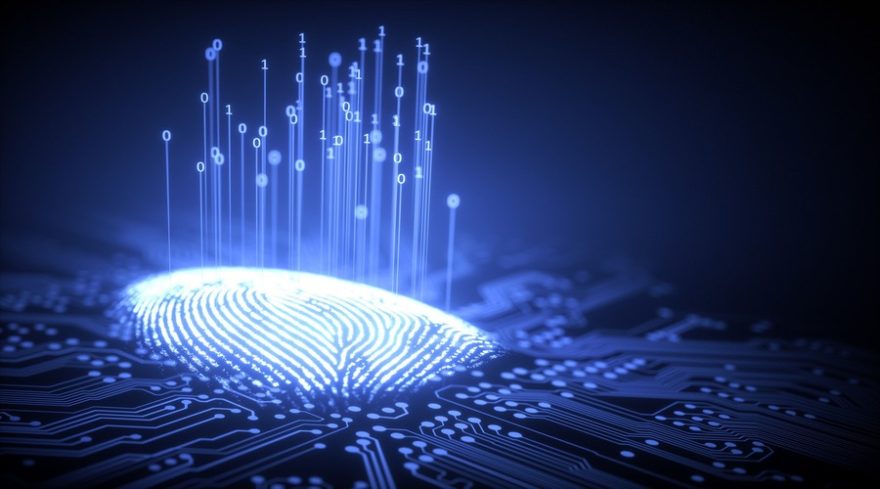The world of digital assets has witnessed a revolutionary advancement with the rise of Non-Fungible Tokens (NFTs). These unique tokens have taken the digital world by storm, enabling individuals to own and trade one-of-a-kind digital assets such as artwork, collectibles, and virtual real estate. However, with the increasing popularity of NFT transactions, there are significant challenges that need to be addressed, including counterfeiting, ownership verification, and security risks. This is where the role of Decentralized Identity (DID) comes into play.
Understanding NFTs and Their Importance
Before we dive into the role of Decentralized Identity, it’s essential to grasp the concept and significance of NFTs. Non-Fungible Tokens represent unique digital assets that cannot be exchanged on a one-to-one basis like cryptocurrencies. Each NFT possesses distinct properties and ownership, making it valuable in the digital realm. Whether it’s a piece of digital art, a rare collectible, or virtual real estate, NFTs have gained immense popularity due to their uniqueness and scarcity.
Challenges in NFT Transactions
While NFTs offer exciting opportunities, they also bring along certain challenges that need to be addressed to ensure a secure and reliable ecosystem. Some of the key challenges include:
- Counterfeiting and Fraud: One of the primary concerns in the NFT space is the risk of counterfeiting and fraud. As NFTs gain traction, malicious actors attempt to create fake duplicates and sell them as original assets. This undermines the value and trust associated with NFTs, making it crucial to establish robust mechanisms for authenticity verification.
- Ownership and Provenance Verification: Establishing ownership and verifying the provenance of NFTs can be a complex task. Without a reliable system in place, it becomes challenging to track the origin and ownership history of digital assets. This lack of transparency raises concerns among buyers and collectors, impacting the overall trust and value of NFTs.
- Security Risks: NFTs are not immune to security risks. Due to their digital nature, they can be susceptible to hacks, data breaches, and unauthorized access. Protecting the integrity and confidentiality of NFT transactions is of utmost importance to maintain a secure ecosystem.
What is Decentralized Identity (DID)?
Decentralized Identity (DID) is a paradigm shift in identity management that aims to provide individuals with control over their digital identities. It allows users to create, manage, and control their identity information without relying on centralized authorities. DID empowers users to assert their identity in a secure and privacy-preserving manner while enabling seamless interoperability across different systems and platforms.
Benefits of DID
Decentralized Identity brings forth numerous benefits that can address the challenges faced by NFTs:
- Ownership and Provenance Verification: DID ensures a transparent and immutable record of ownership for NFTs. By linking a unique decentralized identifier to an NFT, the ownership history and provenance can be easily verified by anyone.
- Enhanced Trust and Verification: With DID, users can verify the authenticity and integrity of NFT transactions in a decentralized manner. This establishes trust among buyers, sellers, and collectors, fostering a reliable ecosystem.
- Protection Against Counterfeiting: Decentralized Identity offers a robust solution for preventing counterfeiting of NFTs. By utilizing verifiable credentials and cryptographic proofs, the authenticity of an NFT can be validated, mitigating the risk of fraudulent duplicates.
Securing NFT Transactions with Decentralized Identity
The integration of Decentralized Identity in NFT transactions provides a secure framework that safeguards the interests of all stakeholders involved. Let’s explore how DID can contribute to the security and integrity of NFT transactions:
- Immutable and Transparent Ownership: By leveraging blockchain technology and decentralized identifiers, NFT ownership becomes immutable and transparent. Every transfer of ownership is recorded on the blockchain, enabling anyone to verify the current and previous owners of an NFT. This transparency enhances trust and reduces the risk of ownership disputes.
- Enhanced Trust and Verification: Decentralized Identity establishes a trust layer in NFT transactions by enabling cryptographic proofs and verifiable credentials. These cryptographic proofs validate the authenticity and integrity of an NFT, ensuring that it is genuine and not a counterfeit. Users can easily verify the credentials associated with an NFT, enhancing trust and reducing the risk of fraudulent activities.
- Protection Against Counterfeiting: Counterfeiting is a significant concern in the NFT space. However, by incorporating a Decentralized Identity, the risk of counterfeiting can be greatly mitigated. Each NFT can be linked to a unique decentralized identifier, and the associated verifiable credentials can be used to prove its authenticity. This prevents the creation and circulation of fake duplicates, preserving the value and trust in NFTs.
Key Components of Decentralized Identity in NFT Transactions
To implement Decentralized Identity in the context of NFTs, it’s essential to understand its key components. Let’s explore the building blocks of Decentralized Identity:
- Decentralized Identifiers (DIDs): Decentralized Identifiers are unique identifiers that are globally resolvable and associated with an entity’s digital identity. DIDs are designed to be decentralized, allowing individuals to control and manage their identifiers without relying on centralized authorities. By linking a DID to an NFT, ownership, and provenance can be reliably established and verified.
- Verifiable Credentials (VCs): nVerifiable Credentials are digital credentials that contain identity-related information and can be cryptographically verified. VCs enable individuals to present and prove specific attributes or claims about themselves without disclosing unnecessary personal information. In the context of NFTs, verifiable credentials can be used to establish the authenticity and integrity of an NFT, ensuring that it is not counterfeit.
- Self-Sovereign Identity (SSI): Self-Sovereign Identity is a concept that emphasizes individuals’ control over their digital identities. It enables users to manage their identity information, selectively share it with others, and maintain privacy and autonomy. SSI aligns well with Decentralized Identity and can empower users to assert their ownership and control over NFTs without relying on intermediaries.
Implementing Decentralized Identity for NFT Transactions

To implement a Decentralized Identity for NFTs, several considerations need to be taken into account:
- Integration with Blockchain Technology: Blockchain technology forms the foundation for NFTs and Decentralized Identity. Integration with a suitable blockchain platform, such as Ethereum or Solana, enables the secure and transparent tracking of NFT ownership and the execution of decentralized identity-related operations.
- Interoperability and Standardization: Interoperability is vital for the widespread adoption of Decentralized Identity in the NFT space. The development of industry standards and protocols that facilitate the seamless transfer of NFTs across different platforms and ecosystems is crucial. Interoperability ensures that NFTs can be verified and transferred across multiple marketplaces, enhancing liquidity and accessibility.
- User Experience Considerations: When implementing Decentralized Identity for NFTs, it is essential to prioritize the user experience. User-friendly interfaces and intuitive processes can encourage wider adoption and participation in the NFT ecosystem. Striking a balance between security, privacy, and ease of use is paramount to ensure a smooth user experience.
Case Studies: Decentralized Identity and NFTs
Decentralized Identity has already showcased its potential in securing NFT transactions in various industries. Let’s explore a few case studies:
- Art Market and Authenticity Verification: The art market has been greatly impacted by NFTs, but concerns about authenticity and provenance remain. By utilizing a Decentralized Identity, artists can establish an immutable record of ownership, providing buyers with verifiable proof of authenticity. This helps combat the issue of counterfeit art and ensures that artists receive proper recognition and compensation for their work.
- Collectibles and Limited Edition Items: Collectibles, such as trading cards and limited edition items, have found a new life in the digital world through NFTs. Decentralized Identity allows collectors to authenticate and verify the scarcity and authenticity of these digital collectibles. This adds value to the items and protects collectors from purchasing counterfeit or unauthorized duplicates.
- Gaming and Virtual Assets: The gaming industry has embraced NFTs as a means of tokenizing in-game assets and providing players with true ownership. Decentralized Identity ensures that gamers can securely buy, sell, and trade their virtual assets without the risk of fraud or unauthorized access. It also enables interoperability between different gaming platforms, allowing players to transfer assets seamlessly.
Potential Challenges and Future Developments
While Decentralized Identity holds significant promise for securing NFT transactions, there are challenges and future developments to consider:
- Scalability and Performance: As NFT transactions continue to surge, scalability and performance become crucial factors. Ensuring that decentralized identity systems can handle the increasing transaction volume without compromising speed and efficiency is essential for a seamless user experience.
- Adoption and Education: The adoption of a Decentralized Identity in the NFT space requires education and awareness among users, artists, collectors, and marketplaces. Overcoming the learning curve and showcasing the benefits and usability of Decentralized Identity solutions can drive wider adoption and acceptance.
- Regulatory Considerations: Regulatory frameworks around NFTs and Decentralized Identity are still evolving. Addressing privacy concerns, data protection, and compliance with existing regulations will play a significant role in shaping the future of decentralized identity in the NFT space.
Conclusion
Decentralized Identity plays a crucial role in securing NFT transactions by addressing challenges such as counterfeiting, ownership verification, and security risks. Through the use of DIDs, VCs, and SSI, Decentralized Identity provides transparency, trust, and protection against fraudulent activities. By implementing Decentralized Identity in NFT transactions, individuals can assert ownership, verify authenticity, and create a secure ecosystem for digital assets.
FAQs
FAQ 1: How does decentralized identity prevent counterfeiting of NFTs?
Decentralized Identity utilizes cryptographic proofs and verifiable credentials to establish the authenticity of NFTs. By linking unique decentralized identifiers to NFTs and verifying their credentials, the risk of counterfeiting is significantly reduced.
FAQ 2: Can decentralized identity be applied to existing NFT platforms?
Yes, decentralized identity can be integrated into existing NFT platforms by leveraging compatible blockchain technologies. Through interoperability standards and protocols, decentralized identity solutions can seamlessly interact with different platforms, enhancing the security and integrity of NFT transactions.
FAQ 3: What are the security risks associated with decentralized identity?
Decentralized Identity introduces security risks such as private key management and the potential for identity theft. It is crucial to implement robust security measures, including secure key storage and strong authentication mechanisms, to mitigate these risks and protect user identities.
FAQ 4: Will decentralized identity impact the user experience of NFT transactions?
Decentralized Identity aims to enhance the user experience of NFT transactions by providing secure and seamless ownership verification. While some additional steps may be involved in the verification process, user-friendly interfaces and intuitive designs can minimize any negative impact on the user experience.
FAQ 5: What are the future prospects of decentralized identity in the NFT space?
The future prospects of decentralized identity in the NFT space are promising. As adoption and education increase, decentralized identity solutions will play a vital role in establishing trust, transparency, and security in NFT transactions. Continued developments in scalability, interoperability, and regulatory frameworks will further drive the integration of decentralized identity in the NFT ecosystem.

